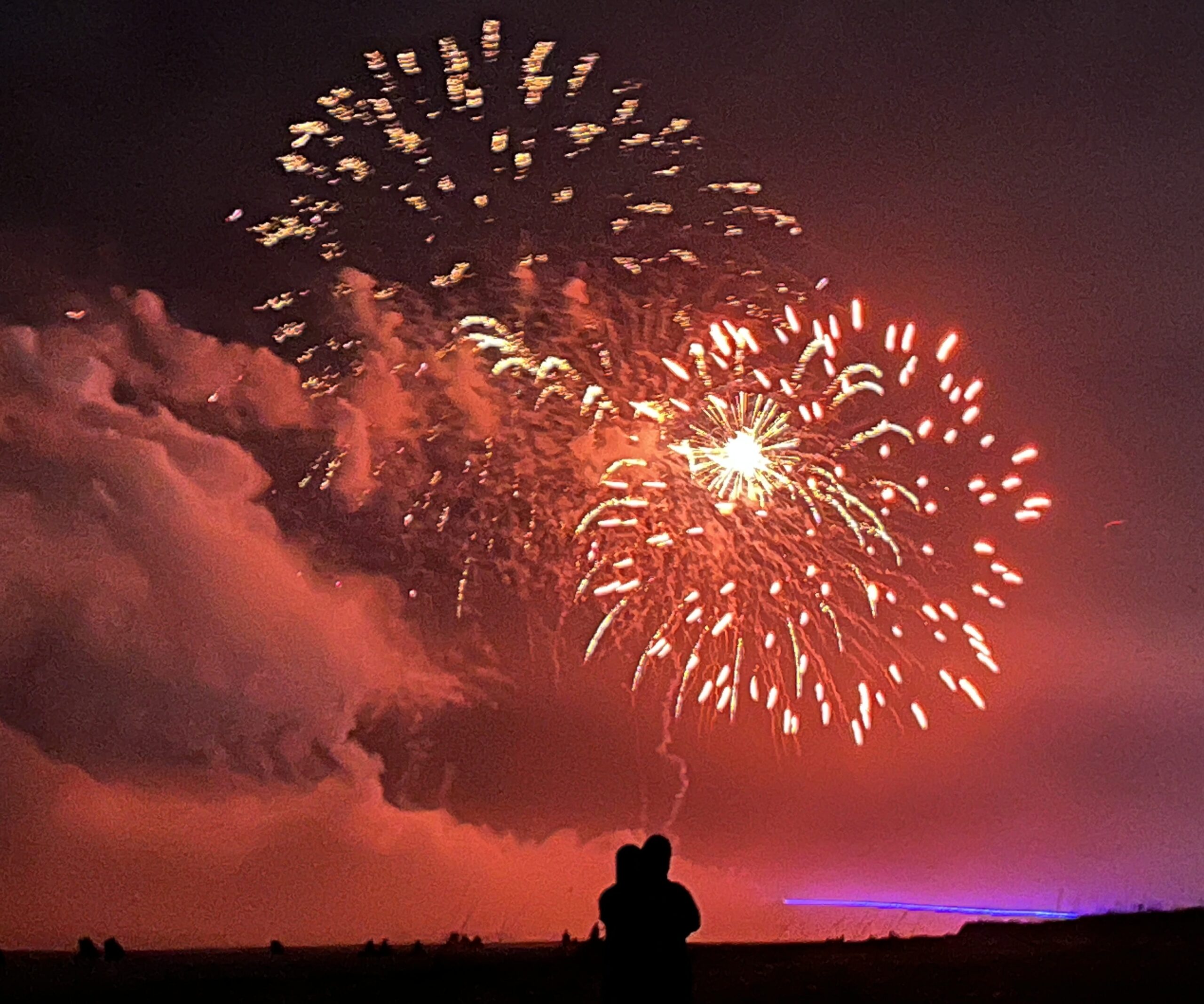Fireworks at St Augustine Beach is a serious local tradition. They are launched from the fishing pier along A1A Beachside; but we watched them from the beach inside of Anastasia State Park. It is a great vantage point because you can see the pier and the launching of the fireworks from there. Sharon and I brought out a bottle of Asti Spumante and did a couple of toasts and had a little fun too. We never tire of fireworks. But with fireworks there is no really much to talk about so I though we would include some history of the celebration. Below is a small portion of an article I found about the history of New Years Eve. To read the entire piece, just click this link.
https://resolutiondenver.com/history-of-new-years-eve/
Check out St Augustine’s Nights of Lights too!
https://storiesacrossamerica.com/st-augustines-nights-of-lights-2022/
How New Year Celebrations Began
The first known record of New Year’s celebrations began about 2000 B.C. in Mesopotamia. This occurred at the time of the vernal equinox, which is toward the end of March. Babylonians would have a religious festival named Akitu taken from the Sumerian term for barley. They’d perform various rituals, which would last for 11 days.
January 1 as the New Year
The origin of January 1 marking the New Year dates back to 46 B.C., when Julius Caesar developed the solar-based Julian calendar. This was after the old lunar-based Roman calendar became ineffective.
Another reason behind making January 1 the start of the New Year was to honor Janus — the Roman god of beginnings who had two faces. This means that he could go back to the past and move forward to the future.
New Year’s Eve: Not just for fireworks, but different celebrations and traditions
You can’t say goodbye to 2022 and welcome another year without celebrating New Year’s Eve. Various countries have their own traditions and celebrations, but there are also common ways to celebrate this special occasion.
Eating Good Luck Food
One of the highlights of New Year’s Eve is the different kinds of food to be shared with family and friends. However, as we’re anticipating a better year, we also love to pick those that have meanings and let us bring good luck, like the following examples:
12 Grapes at Midnight. A popular tradition in Spain includes eating 12 grapes on New Year’s Eve. These grapes represent the 12 months, and you have to eat all of them to enjoy a lucky year.
Eating Cakes. In Greece, Mexico, the Netherlands, and other countries, round cakes symbolize the circle of life. Others would put some trinkets or coins inside the cake. Then, if you’re lucky to get it, you’re expected to experience good luck in the coming year.
Eating Pork. Pigs symbolize progress in countries like Austria, Portugal, and Cuba. So, eating pork on New Years’ Eve is common as a way to attract prosperity for the next 365 days.
Eating Noodles. Long noodles are thought to give you a longer and healthier life. You’re supposed to eat them while making sure they don’t break in half. Meanwhile, in Japan, people eat soba noodles on NYE to symbolize their journey from the old year to the new one. This also means leaving behind their regrets in the last year.
Other Traditions related to fireworks and New Years
Wearing the Right Underwear. A few countries, particularly in Latin America, have this superstition that you can manifest success and prosperity if you choose the right color of underwear. For instance, if you want to get lucky in love and relationships, wear red underwear on NYE. Meanwhile, yellow underwear could bring you luck, money, and happiness.
Sharing a kiss. Another popular New Year’s Eve tradition that most people, if not all, love is the midnight kiss — with your partner or even a new friend. Wondering how this part of the history of New Year’s Eve started? It’s thought to be from Saturnalia, a pagan festival in ancient Rome, which involved a lot of singing, dancing, drinking, socializing, sharing gifts, and kissing!
Making New Years Resolutions. From achieving a healthier body, spending more time with family, and pursuing goals and aspirations, to loving ourselves more, we’re fond of creating New Year’s resolutions. However, did you know that this tradition started about four millennia ago? Babylonians would make promises to the gods to ask for a better year.







